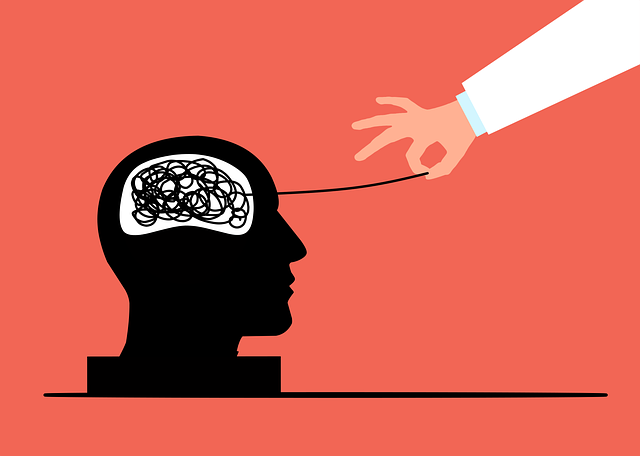Anger, if not managed healthily, can severely damage relationships. This text explores the roots of anger in couples, often linked to unmet expectations, communication issues, or past traumas. It highlights the negative impact on trust and intimacy and emphasizes the importance of anger control therapy. Through CBT, mindfulness, boundary setting, and empathy-building, couples learn to express anger constructively, improve communication, and strengthen their bond. Regular practice and long-term commitment are crucial for maintaining progress in managing anger effectively within relationships.
Anger is a powerful emotion that, left unmanageable, can severely strain relationships. For couples, understanding and addressing anger effectively is crucial for building a healthier, happier union. This article explores comprehensive strategies for anger control therapy, delving into the causes and effects of anger in relationships, communication techniques, cognitive behavioral therapy (CBT), mindfulness practices, setting boundaries, conflict resolution, empathy building, and maintaining progress over the long term.
Understanding Anger in Relationships: Causes and Effects

Anger is a natural emotion, but in relationships, it can become problematic if not managed effectively. Understanding the causes and effects of anger in couples is the first step towards improving communication and fostering healthier interactions. Many factors can trigger anger in relationships, such as unmet expectations, perceived unfairness, or past traumas. These triggers often stem from communication breakdowns, where partners struggle to express their needs, leading to resentment and fury.
The consequences of uncontrolled anger in relationships are significant. It can erode trust, damage intimacy, and create a cycle of conflict. Anger control therapy becomes an essential tool for couples seeking to navigate these challenges. Through this type of therapy, partners learn to recognize triggers, manage intense emotions, and communicate more constructively, ultimately strengthening their bond.
Recognizing the Signs: Identifying Unhealthy Expression of Anger

Many couples struggle with managing and expressing anger in a healthy way, which can lead to strained relationships. Recognizing the signs of unhealthy anger expression is a crucial first step in seeking anger control therapy. Unhealthy anger often manifests as frequent outbursts, raised voices, or even physical aggression, which can create a toxic environment. These explosive reactions may be triggered by seemingly minor issues but can cause significant damage to the relationship over time.
Couples might also exhibit passive-aggressive behavior, such as sulking, sarcasm, or subtle insults, rather than directly communicating their anger. Such indirect expressions can be just as harmful, fostering an atmosphere of confusion and resentment. Identifying these patterns is essential, as it encourages partners to learn healthier coping mechanisms through anger control therapy, fostering better communication and strengthening their bond.
The Role of Communication: Building a Foundation for Change

Effective communication is the cornerstone of any successful anger management strategy for couples. In relationships where anger issues persist, open and honest dialogue often becomes a challenge. Anger control therapy emphasizes the importance of creating a safe space where both partners can express their feelings and frustrations without fear of judgment or escalation. By learning to communicate in a constructive manner, individuals can address underlying triggers and work towards resolving conflicts peacefully.
During sessions, couples learn active listening techniques, enabling them to understand each other’s perspectives better. This process encourages empathy, fostering an environment conducive to making positive changes. In the context of anger management therapy, improving communication skills becomes a powerful tool for building trust and strengthening the bond between partners, ultimately leading to lasting improvements in their relationship dynamics.
Cognitive Behavioral Therapy (CBT): A Powerful Tool for Anger Management

Cognitive Behavioral Therapy (CBT) is a highly effective approach for couples seeking anger management solutions. This evidence-based therapy focuses on identifying and changing negative thought patterns and behaviors that contribute to angry outbursts. By understanding the root causes of their anger, partners can learn to manage and express it healthily. CBT empowers individuals to challenge distorted thinking, replace irrational beliefs with realistic ones, and develop more adaptive coping strategies.
Through CBT, couples can acquire valuable skills to navigate conflicts constructively. This includes improving communication, practicing active listening, and using calming techniques when faced with anger triggers. By working together in a structured therapeutic environment, partners can enhance their emotional intelligence, fostering a deeper understanding of each other’s perspectives and needs, ultimately leading to improved relationship satisfaction and better anger control.
Mindfulness Practices: Calming the Emotional Storm

Anger management for couples often involves incorporating mindfulness practices as a core component in anger control therapy. Mindfulness helps partners to calm themselves during emotional storms, promoting clear thinking and understanding instead of reacting impulsively. By focusing on the present moment and acknowledging their feelings without judgment, individuals can better manage intense emotions that may arise in relationships.
These practices enable couples to navigate difficult conversations with compassion and patience, fostering a safer environment for both parties. Mindfulness encourages active listening, empathy, and self-awareness—skills essential for resolving conflicts constructively. Through regular mindfulness exercises, couples can learn to respond rather than react, ultimately strengthening their bond by improving communication and emotional regulation.
Setting Boundaries: Protecting Personal Space and Respect

Setting boundaries is a crucial aspect of anger management for couples, serving as a protective shield for each partner’s personal space and respect. In the heat of an argument, it’s easy to forget about individual needs, but establishing clear limits helps prevent escalation. This involves learning to say “no” without guilt and recognizing when to step back or take a time-out. Anger control therapy often emphasizes the importance of setting boundaries, teaching couples effective communication strategies to navigate conflicts while maintaining mutual respect.
By defining personal space, both emotionally and physically, partners can create a safe environment where anger can be expressed constructively rather than destructively. Respecting each other’s boundaries fosters an atmosphere of trust and understanding, enabling couples to address issues without fear of overwhelming or being disrespected. This practice strengthens the bond between partners, making their relationship more resilient in managing intense emotions like anger.
Effective Conflict Resolution Strategies for Couples

Effective conflict resolution is a vital component of healthy relationship dynamics. Couples experiencing difficulties with anger management often find themselves stuck in unproductive arguments, which can damage their bond. Learning and implementing specific strategies during these moments is key to resolving conflicts peacefully. One proven approach is active listening, where each partner takes turns expressing their feelings and concerns without interrupting, ensuring complete understanding.
Another powerful tool in the arsenal of anger control therapy is using ‘I’ statements instead of accusatory language. For instance, saying “I feel hurt when…” instead of “You always…” encourages a shared focus on emotions and avoids defensiveness. Additionally, setting clear boundaries during discussions and taking breaks when tempers flare up can help de-escalate the situation, allowing for more rational decision-making and thoughtful communication.
Building Empathy: Understanding Your Partner's Perspective

In anger control therapy, building empathy is a crucial step towards resolving conflicts in couples’ relationships. It involves actively listening to and comprehending your partner’s feelings and viewpoints, even if they differ from your own. By putting yourself in their shoes, you gain a deeper understanding of why certain situations or behaviors trigger anger. This perspective-taking fosters a more supportive environment where both individuals feel heard and validated, reducing the likelihood of escalating arguments.
Empathy allows couples to navigate through complex emotional landscapes together. When partners can appreciate each other’s perspectives, they become better equipped to communicate effectively, compromise, and find mutually satisfying solutions. It encourages a sense of connection and strengthens the bond between them, making their relationship more resilient in the face of challenges that may arise due to anger-related issues.
Maintaining Progress: Long-Term Strategies for Anger Control Therapy

Maintaining progress in anger control therapy is crucial for couples looking to foster lasting positive changes. After initial sessions, it’s essential to integrate learned techniques into daily routines. This might involve setting regular check-ins with each other and a therapist to discuss triggers, strategies, and any challenges faced. By consistently practicing mindfulness, effective communication, and stress management skills, couples can prevent anger from escalating and create a more harmonious relationship.
Long-term success in anger control therapy requires commitment and adaptability. Both partners should be willing to continue attending sessions or participating in activities that reinforce the learned strategies. Embracing ongoing growth and regularly reassessing one’s approach to conflict resolution ensures that the couple stays on track, even during difficult periods.
